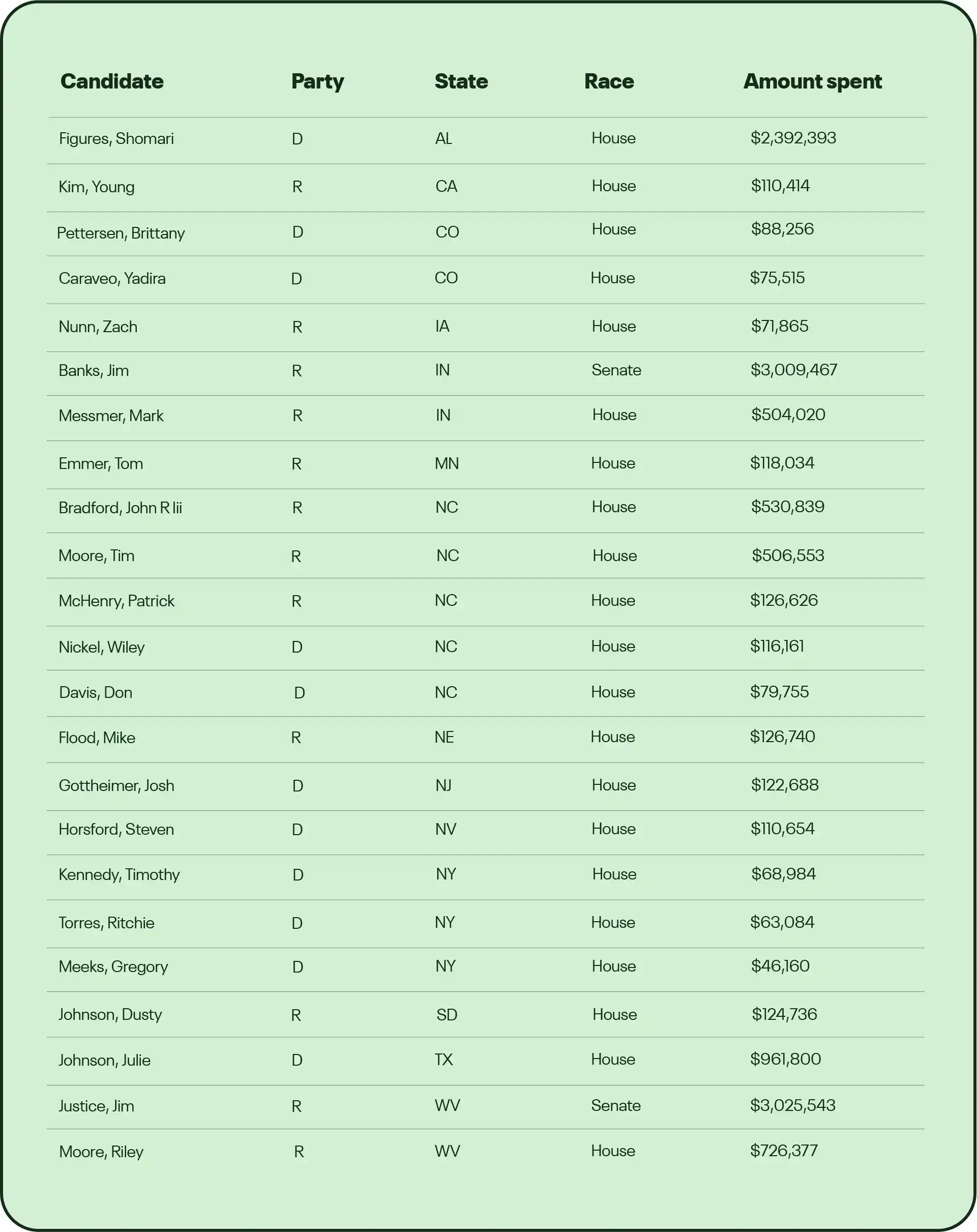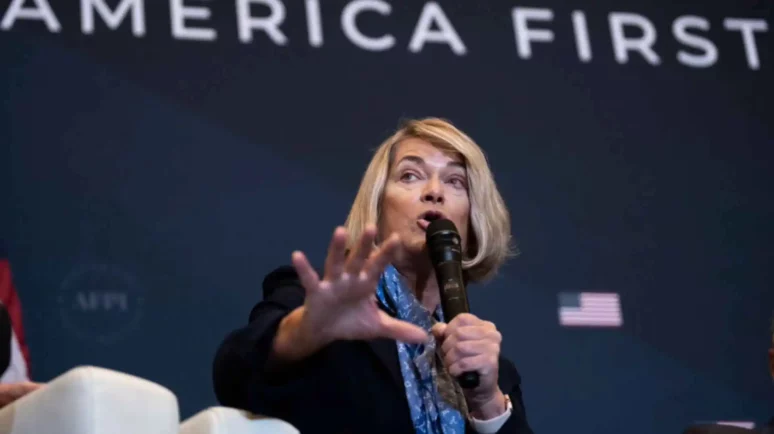Jim Banks and Shomari Figures Among 22 Candidates to Receive Support From $100M Crypto Super PACs

Indiana Senate candidate Jim Banks is among those who have recieved support from pro-crypto Super PACS.
Key Takeaways
- Three pro-crypto Super PACs have donated to 22 Congressional campaigns.
- Candidates for the House and Senate have received millions from Fairshake, Defend American Jobs and Protect Progress.
- The PACs are supporting both Democratic and Republican candidates.
Fairshake and and its two sister Super PACs, Defend American Jobs and Protect Progress, have collectively raised over $100 million from Coinbase, Ripple Labs and other crypto sector donors.
The Super PACs have so far focused their efforts on both Republican and Democratic primaries, spending millions of dollars to help put pro-crypto candidates on the ballot and ensure hostile ones aren’t.
Pro-Crypto Super PAC Spending
According to information collected by Open Secrets, the three Super PACs have spent $13.1 million supporting 11 Democratic candidates and 12 Republicans.
They have also spent an additional $10.3 million attacking Democratic candidates Katie Porter and Anthony Daniels in California’s House and Senate races.
Known for her tough stance on crypto mining, as a House Representative, Porter was among a group of lawmakers who launched an investigation into whether Texas miners were impacting consumer electricity prices in the state.
Having spent over $10 million ensuring she didn’t make it onto the Democratic ticket in California’s Senate race, Fairshake has spent more money opposing Porter than on any other candidate. In the deep blue state, Porter’s loss to Adam Schiff gives the latter a clear path to Washington.
Influencing Democratic Primaries
Without taking the money spent on the California Senate race into account, pro-crypto Super PACs have directed $4.1 million toward Democratic candidates.
In Alabama’s Second Congressional District, Protect Progress threw its weight behind Shomari Figures. It donated more than $2 million to primary his campaign while spending an additional $240,000 attacking his runoff opponent, Anthony Daniels.

Taking 61% of the vote, Figures will now face off against Republican nominee Dick Brewbaker in November. Democrats are expected to clinch the election.
Among candidates who have received money from the three PACs, Figures received the most of any Democrat. However, the biggest beneficiaries have been Republican hopefuls.
Defend American Jobs Backs Republican Senate Candidates
In Indiana and West Virginia’s Senate races, Defend American Jobs has donated more than $3 million each to the campaigns of Jim Banks (IN) and Jim Justice (WV).
As a House Representative, Banks co-sponsored the Financial Innovation and Technology for the 21st Century Act.
The proposed bill would help to settle the jurisdictional disagreements currently plaguing crypto regulation in the United States. It would outline the respective roles of the Securities and Exchange Commission (SEC) and the Commodity Futures Trading Commission (CTFC).
Meanwhile, as Governor of West Virginia, Justice helped enact legislation regulating cryptocurrency relating to money laundering.
When asked about his stance on the technology recently, he echoed familiar Republican talking points. He criticized perceived government overreach and central bank digital currencies (CBDCs).
He said: “America has a tremendous opportunity with the innovation and technology around […] blockchain, and cryptocurrencies.
“As elected leaders, we must ensure a digital market structure that protects Americans from bad actors but allows these innovators to flourish and create new and exciting technology and opportunities.”


